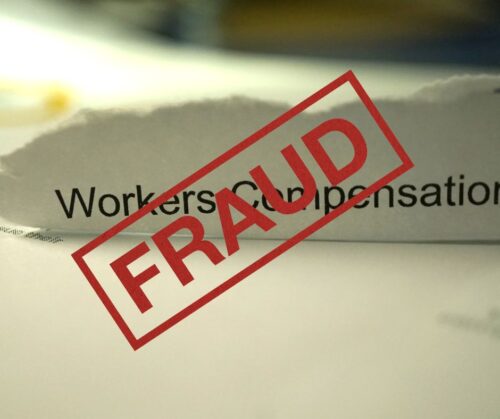Workers’ compensation insurance offers essential medical care and financial support to employees injured or incapacitated at work. Unfortunately, this benefit is sometimes exploited by dishonest individuals. According to the Coalition Against Insurance Fraud, 16% of workers’ comp  claims are fraudulent, resulting in $9 billion in annual losses. These losses impact businesses, insurers, and states, but there are steps you can take to minimize fraud in your organization.
claims are fraudulent, resulting in $9 billion in annual losses. These losses impact businesses, insurers, and states, but there are steps you can take to minimize fraud in your organization.
Common Fraud Schemes
Employee Fraud: Employees may file claims for injuries they didn’t sustain or for injuries that didn’t occur at work. They might exaggerate the severity of their injuries or falsely claim they are unable to work. For example, an employee who breaks a finger at home might claim it happened at work, or they might falsely state that their arm is also broken and they can’t work at all.
Employer Fraud: Some employers commit fraud by misclassifying employees as independent contractors to avoid paying insurance, understating their payroll, or neglecting to purchase workers’ comp insurance altogether. To protect employees and avoid legal issues, ensure your business complies with state labor laws.
Prevention Tips
Policy Development: Create comprehensive policies and procedures. Employees should know what to do in case of an accident and understand the difference between legitimate claims and fraud, along with the consequences of making false claims.
Hiring Practices: During the hiring process, check for any history of workers’ comp fraud. In new employee training, explain your process for validating claims and inform them that your insurance company may investigate claims.
Claim Verification: Trust but verify claims. Gather witness testimonies, surveillance footage, and timecards. Social media can also be a useful tool; if an employee claims to be bedridden but posts photos of themselves partying, collect that evidence.
Exercise Caution
Fraudulent claims cost billions annually. Preventing workers’ comp fraud can be complex, so consider consulting an attorney specializing in labor issues to avoid violating workers’ rights while investigating suspicious claims. Contact us if you need assistance with potential occupational fraud investigations.







